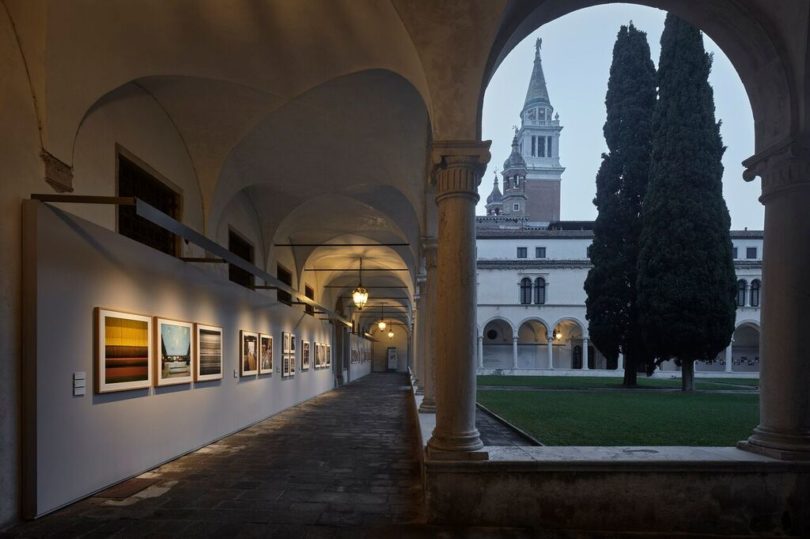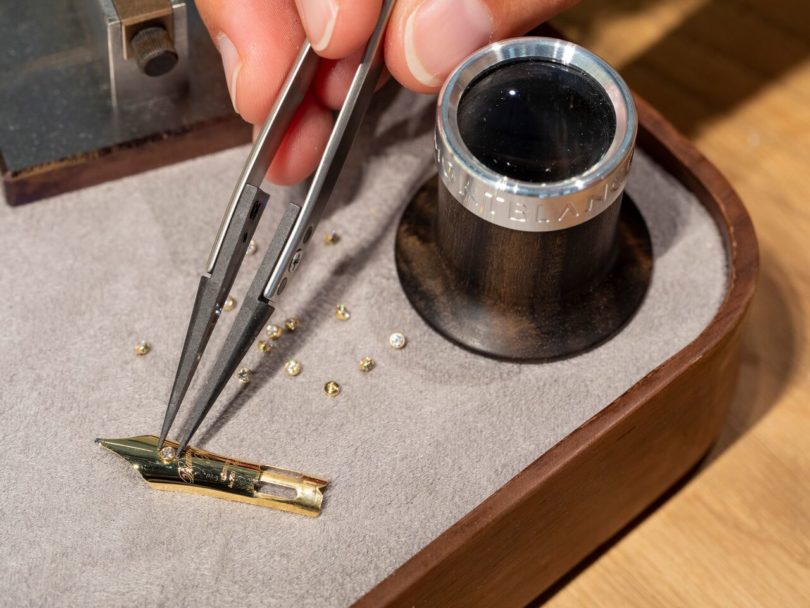At Homo Faber, Luxury Craftspeople from Hermes, Mont Blanc Show The Value of Hand-Produced Crafts
Venice, home of the world’s most famous architecture biennale and art biennale, has a new reason to stake its claim as the European centre for craftsmanship. The premier event of Homo Faber (“Made by Man”), a biennale that showcases and supports the artisans who dedicate themselves to the mastery of craftsmanship, took place at Fondazione Giorgio Cini on the Isola di San Giorgio Maggiore last month.
When digital tools and modern technology can 3-D print an entire house — interiors and all — in a day, the luxury brands at the exhibition nevertheless insist that their fine work is made best by hand.
The event’s tagline, “Crafting a More Human Experience,” was distilled to the audience not only by emphasizing the virtue of the human-made products.
Homo Faber curator Alberto Cavalli spoke bluntly about how craftsman took a blow when times were bad. He underscored the difficult realities of an artisan making a handmade product, and emphasized the need for more mutual respect. This exhibition, grandeur and luxury aside, was a way to beseech the public to save a luxury industry under threat.
At the Hermes exhibit, 22-year-old saddlemaker Thibaud Delpech from Paris shared that each saddle is assigned to one maker who will oversee the entire production from start to finish.
While the process is lengthy and cost-exhaustive, especially with the entire saddlemaking team of Hermes working from Paris, Hermes started as an equestrian company. It would seem unjust to the company’s roots to phase out this luxury item in favour of their high-fashion clothes and bags, marketable as they are. The saddle remains a product deserving of respect for the brand. It is something their designers take pride in as well; Delpech shared that he used to work at the Hermes bag workshop but switched to the saddlemaking team once a position opened up.
As a horse lover, he says this is the dream job: to work with horses and make sure riders ride them well.
Cutlery maker Lorenzi Milano had a craftsman on site make bespoke cutlery from Springbok horn.
While the horn was beautiful, it looked unnatural as a cigar set or ash tray. For an exhibition that wants to reclaim natural, handmade ways of design, it avoids answering the question of luxury within animal-sourced goods. Leather may seem less stark, particularly after treatment, but when each horn resembled the signature feature of the animal, it begs to question how far our human luxuries should extend. Can traditional notions of luxury co-exist with modern sustainability?
At Mont Blanc, Head of Final Assembly and Nib Manufacturing Frank Derlien walked guests through the 35 steps to create an 18-karat Mont Blanc nib. The cost of a gold-karat pen is hard to justify when run-of-the-mill pens are so readily available and are oftentimes given out for free; but Derlian is confident that the Mont Blanc pens, aligned to the person’s unique handwriting and grip, forge an exquisite writing experience that goes beyond ink and purpose.
The grandest of projects and the one with the most interesting story to tell was the Eilean, a yacht previously owned by William Fife III, a legendary Scottish yacht builder who has said to have built 600 yachts in his lifetime. Angelo Bonati, Officine Panerai’s CEO, came across the yacht, wrecked amongst mangrove bushes in Antigua, and took it upon himself to restore it to life.
Photo by Tomas Bertelsen.While Homo Faber seeks to inspire visitors to embody the respect and care for products that Bonati of Panerai had for the yacht Eilean, the reality is that most of us, upon seeing a yacht, are unable to take it upon our own finances and goodwill to bring it back to life.
What would be more interesting to see is the possibility of a consensus, a meeting point between handmade quality and affordability, so that these artisans can feel less threatened by the necessary market of mass-produced products. People who want a well-made personal pen or saddle can have, perhaps, a personalized craftsman and modern digital manufacturing tools at their disposal, both complementary instead of in competition, so as to bring the price down to where it can be more affordable, and make it a win for all.
from Design MilkInterior Design – Design Milk https://ift.tt/2RDZ5Fo
via Design Milk








No comments